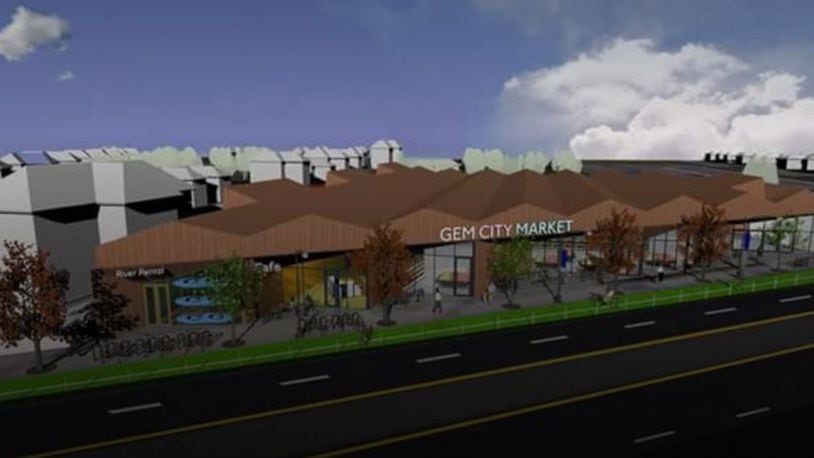“We have come as far as we can come as a small group, and now it’s time for the community to step up and be part of this,” said Lela Klein, executive director of the Greater Dayton Union Co-op Initiative, which is developing the market.
RELATED: Location chosen for northwest Dayton grocery store
The initiative wants to construct the roughly 15,000-square-foot Gem City Market on a grassy lot on the 100 block of Salem Ave., which is owed by Omega Baptist Church.
The grocery store will be owned by workers, customers and other community supporters and likely will employ 20 to 30 people. It will offer a blend of kitchen staples and specialty and organic products.
The food cooperative will cost about $3.9 million to open.
Supporters already have started seeking donations and charitable contributions and expect to pursue low-interest loans.
But the market also needs to sell 2,000 shares by the time it opens for business. Shares will cost $100, though low-income residents likely will have subsidized purchasing options.
Organizers said the early response has been highly encouraging.
“Our inboxes have been blowing up — our personal ones, our official ones — with people wanting to buy shares,” said Amaha Sellassie, who is on the board of the Gem City Market and the steering committee of the Greater Dayton Union Co-op Initiative. “This is something people have been waiting for for a long time — it’s needed and the time is now.”
RELATED: 5 things to know about northwest Dayton grocery co-op
The goal is to raise the capital by the end of 2017, and construction would likely take about a year to complete, supporters said. Shares are expected to go on sale in April.
Reaching 2,000 shares would demonstrate strong interest in the market, according to Sellassie, but that goal has deeper significance.
To be sustainable, the market by its fourth year in operation will need to capture 9.5 percent of the monthly food dollars spent by residents in the targeted area, according to research.
The grocery store trade area contains about 22,000 residents who spend more than $3 million per month on groceries, according to Richard Stock, director of the Business Research Group at the University of Dayton.
The goal is to capture sales of roughly $350,000 per month.
The trade area stretches from Hillcrest Avenue to the north to U.S. 35 to the south. The eastern border is the Stillwater and Great Miami rivers. The western border mainly runs along Philadelphia Drive.
“You don’t have to live in the trade area to shop with us, and you don’t have to live in the trade area to buy a share,” Klein said.
RELATED: Northwest Dayton closer to getting grocery store
In order to succeed, the grocery store will need to have products that people want, competitive pricing, a safe and clean environment and quality customer service, supporters said.
The market feasibility study did not include shoppers from downtown and other parts of the city.
Downtown has more than 1,300 market-rate housing units and is home to many thousands of jobs. The market will be right across the river from the center city.
Stock said other shoppers likely would include employees of downtown anchor institutions traveling home up the Salem Avenue corridor and University of Dayton and Sinclair Community college students.
Between 15,000 to 18,000 vehicles on average pass through the lower Salem Avenue corridor every day.
About the Author
